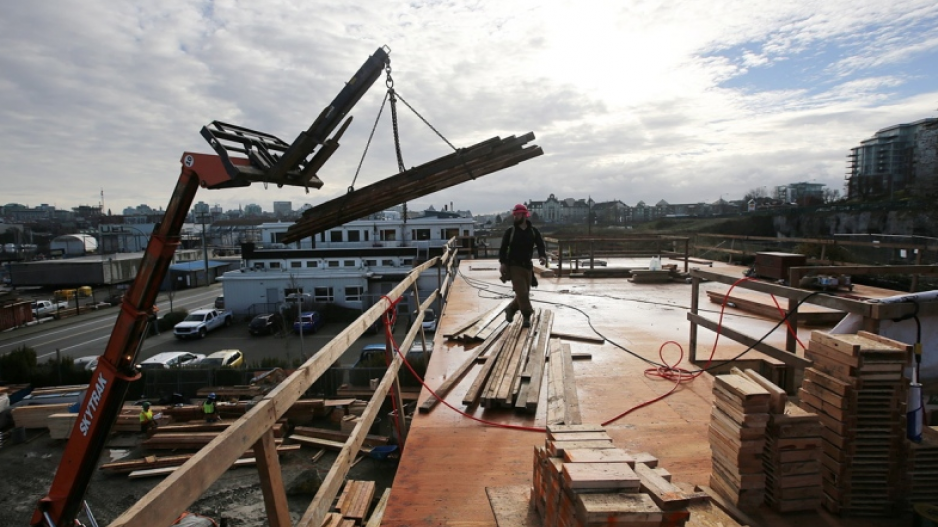The rental housing market is tightening in Victoria in response to the region’s strong economy and idyllic environment.
CMHC’s fall rental market report showed the region’s vacancy rate dropped to 0.5% from 0.6% from last October, while average rent increased 5.5% to $994.
“Despite the introduction of new units to the rental market, supply remained constant as older units were removed for renovation. With a near-constant supply and an increase in demand, the vacancy rate declined,” the report noted.
That demand came from Greater Victoria’s growing population. CMHC said a buoyant economy drew new people to the region and as a result of the strong in-migration, there are more than 2,100 new households in the capital region.
“With accelerated price growth for existing homes, many would-be first-time homebuyers may have decided to delay purchasing a home, instead remaining in the rental market, adding to demand for rental units,” the CMHC said.
The survey didn’t surprise the head of B.C.’s largest landlord association.
David Hutniak, chief executive of Landlord B.C., said there might be additional reasons the rental market has tightened.
“Even though we are seeing great traction in terms of purpose-built rental, and there is plenty coming on-stream, the secondary market is so important [in the capital region].”
By secondary market, Hutniak meant condominiums being rented out by their owners or suites in houses being rented out for income.
“We have heard enough of this [anecdotally] that we are convinced that with the high volume of single-family home sales, the secondary market has taken a hit,” he said.
“There are new buyers coming into Victoria, some from Vancouver with plenty of cash and who don’t need or want to be landlords.
“That is basically taking some of the product out of the rental pool.”
Rental vacancy rates of private apartments improved slightly in two categories this year. The rate increased to 0.6% from 0.5% in two-bedroom suites, and to 0.5 from 0.2% in three-bedroom suites.
The bachelor-suite vacancy rate dropped to 0.4% from 0.7%, while the rate in one-bedroom suites dropped to 0.5% from 0.7.
Average rent rose across the board.
The average rent for a bachelor suite was $785 in October, up from $742 at the same time last year, while one bedrooms rose to $912 from $867, two bedrooms jumped to $1,188 from $1,128 and three-bedroom suites rose to $1,485 from $1,384 over the last year.
Hutniak said the tight market and increased cost could be called a crisis, and he warned true relief is not to be found in the short term.
“Adding to the misery, more in Vancouver than Victoria, is Airbnb, which is taking thousands of units of long-term housing out of the market,” he said.
Hutniak said Victoria has some reason for optimism, as the city has been working to fast-track rental housing developments and the industry is keen to build.
Commercial real estate firm Colliers International said there could be as many as 1,000 purpose-built rental units delivered to the market in next 18 to 24 months.
With the province committing more than $500 million to social housing and the federal government starting to show interest in a national housing strategy, Hutniak said he’s feeling more optimistic than he has in a year.
Check out BIV’s podcast for the week of November 23, 2016:




